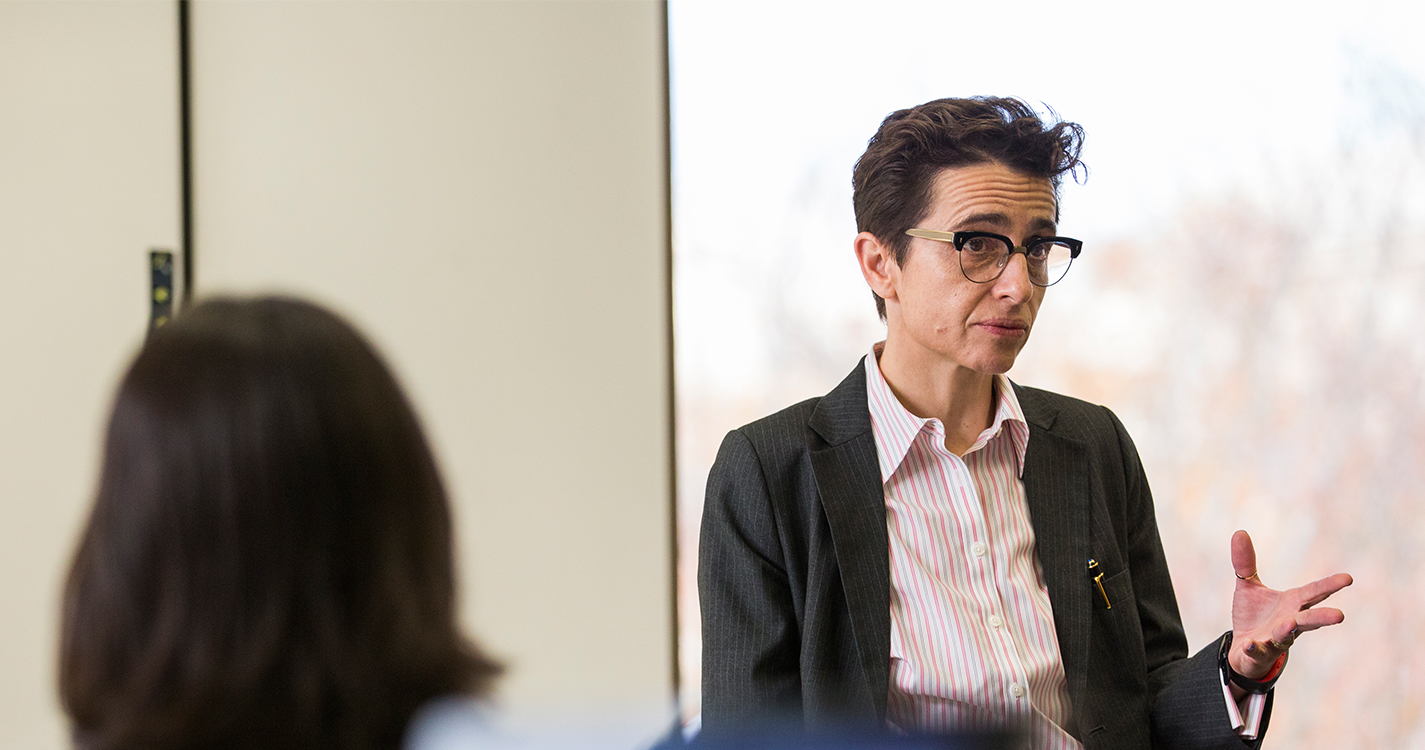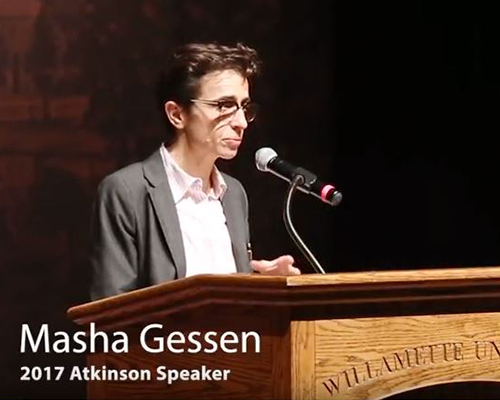The day after she won the National Book Award for Nonfiction for her work “The Future is History: How Totalitarianism Reclaimed Russia,” Masha Gessen made her first public appearance at Willamette University to speak about the dangers to democracy she sees in both Russia and America.
Gessen, a native of Russia and an acclaimed journalist, author and activist now living in New York, was the guest speaker for the fall 2017 Atkinson Lecture — the university’s premiere speaker series.
As a journalist living in Moscow, Gessen experienced firsthand the rise of President Vladimir Putin. In her 2012 bestselling book “The Man Without a Face: The Unlikely Rise of Vladimir Putin,” she revealed how the former KGB operative destroyed years of democratic progress.
During a special class session with Willamette students facilitated by Associate Professor of Russian Sarah Bishop, Gessen talked specifically about her role as editor of the Russian science magazine Vokrug sveta, her firing from the publication and subsequent meeting with Putin at the Kremlin.
“When I met Putin, it was like meeting the character from my book,” she said. “Talking to him brought my character to life.”
She also talked to the students about the anti-LGBT policies in place in Russia and what it was like being one of the few people who were publicly out of the closet in Russian society.
“Because queer people represent the idea that a different future is possible, that runs against the ethos of autocrats,” she explained. “In the current setting in Russia, this has resulted in queer people becoming scapegoats and targets of discrimination and the focus of recent policies.”
Speaking in Smith Auditorium on Nov. 16 to an audience of more than 500 people from the university and local communities, Gessen gave a presentation on “What Russia Can Teach Us About the United States.” She shared her fears about the similarities she sees in the autocratic approaches of both Putin and President Donald Trump, noting both men’s apparent nostalgia for previous simpler and better eras in their countries’ histories, their dismantling of fundamental democratic institutions and processes, and their distaste for the “messiness of democracy.”
Gessen pointed out that whereas Putin had enacted a slow kind of “autocratic creep” in Russia, Trump had created an “autocratic cacophony.” “We’ve been at the brink of nuclear war with Korea for three months, and irreparable, permanent damage is being done to the planet,” she said. “Those things become a baseline of dread.”
When people feel overwhelmed about the pace of such departures from normal behavior and events, she explained, “it hinders our ability to think about the future — but that’s what we need to do.”
Looking back on the 2016 presidential campaigns, Gessen noted, “Trump campaigned on the past. Hillary Clinton campaigned on the perfect present. But we have to have the courage to imagine the future … a place where we want to live.”


